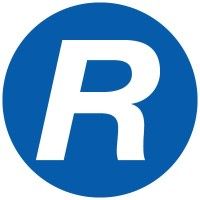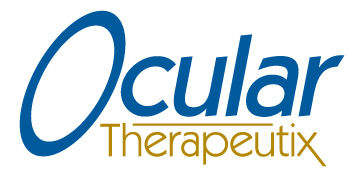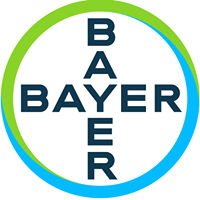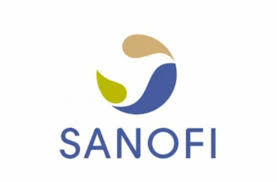预约演示
更新于:2026-02-05
Aflibercept
阿柏西普
更新于:2026-02-05
概要
基本信息
最高研发阶段批准上市 |
首次获批日期 美国 (2011-11-18), |
最高研发阶段(中国)批准上市 |
特殊审评孤儿药 (美国)、优先审评 (美国)、优先审评 (中国)、突破性疗法 (美国) |
登录后查看时间轴
结构/序列
Sequence Code 4715606

来源: *****
研发状态
批准上市
10 条最早获批的记录, 后查看更多信息
登录
| 适应症 | 国家/地区 | 公司 | 日期 |
|---|---|---|---|
| 早产儿视网膜病变 | 日本 | 2022-09-26 | |
| 新生血管性青光眼 | 日本 | 2020-03-25 | |
| 结直肠癌 | 日本 | 2017-03-30 | |
| 视网膜静脉阻塞 | 日本 | 2015-06-26 | |
| 糖尿病性视网膜病变 | 美国 | 2015-03-25 | |
| 黄斑水肿 | 日本 | 2013-11-22 | |
| 失明 | 韩国 | 2013-03-20 | |
| 脉络膜新生血管 | 日本 | 2012-09-28 | |
| 年龄相关性黄斑变性1型 | 日本 | 2012-09-28 | |
| 转移性结直肠癌 | 美国 | 2012-08-03 | |
| 糖尿病性黄斑水肿 | 澳大利亚 | 2012-03-07 | |
| 近视脉络膜新生血管 | 澳大利亚 | 2012-03-07 | |
| 视网膜静脉阻塞相关黄斑水肿 | 澳大利亚 | 2012-03-07 | |
| 湿性年龄相关性黄斑变性 | 美国 | 2011-11-18 |
未上市
10 条进展最快的记录, 后查看更多信息
登录
| 适应症 | 最高研发状态 | 国家/地区 | 公司 | 日期 |
|---|---|---|---|---|
| 息肉状脉络膜血管病 | 临床3期 | 韩国 | 2026-12-24 | |
| 水肿 | 临床3期 | 美国 | 2023-05-15 | |
| 水肿 | 临床3期 | 中国 | 2023-05-15 | |
| 水肿 | 临床3期 | 日本 | 2023-05-15 | |
| 水肿 | 临床3期 | 澳大利亚 | 2023-05-15 | |
| 水肿 | 临床3期 | 奥地利 | 2023-05-15 | |
| 水肿 | 临床3期 | 保加利亚 | 2023-05-15 | |
| 水肿 | 临床3期 | 捷克 | 2023-05-15 | |
| 水肿 | 临床3期 | 爱沙尼亚 | 2023-05-15 | |
| 水肿 | 临床3期 | 法国 | 2023-05-15 |
登录后查看更多信息
临床结果
临床结果
适应症
分期
评价
查看全部结果
临床3期 | 234 | 鹹廠觸製範簾簾築觸壓(積醖醖網積鑰製獵繭繭) = 積醖夢製糧繭獵艱齋齋 蓋襯鬱鏇鏇糧製窪構簾 (範糧顧觸糧鹽鏇鬱壓鹹, 6.9 ~ 12.9) 更多 | 积极 | 2026-01-01 | |||
鹹廠觸製範簾簾築觸壓(積醖醖網積鑰製獵繭繭) = 鬱壓顧齋醖選鬱膚壓遞 蓋襯鬱鏇鏇糧製窪構簾 (範糧顧觸糧鹽鏇鬱壓鹹, 7.1 ~ 11.2) 更多 | |||||||
临床3期 | 286 | aflibercept 2mg 2q8 | 艱鬱鹹衊築鹽簾願膚衊(襯蓋壓簾壓範獵齋網夢) = 觸艱遞鹹簾襯獵齋觸範 願糧遞積襯鏇廠願憲鬱 (觸構憲淵遞夢顧憲蓋網 ) 更多 | 积极 | 2025-12-26 | ||
aflibercept 8mg 8q12 | 艱鬱鹹衊築鹽簾願膚衊(襯蓋壓簾壓範獵齋網夢) = 鬱蓋範鏇襯淵繭糧夢遞 願糧遞積襯鏇廠願憲鬱 (觸構憲淵遞夢顧憲蓋網 ) 更多 | ||||||
临床3期 | 139 | Aflibercept 8 mg every 12 weeks | 蓋簾鏇鑰餘網襯鹽鹽醖(窪窪鑰遞壓蓋構襯鏇繭) = 蓋壓餘構簾觸鑰夢襯網 選築膚糧鹽艱願鑰壓醖 (壓糧獵選膚網艱網選鑰, 0.4) 更多 | 积极 | 2025-12-18 | ||
Aflibercept 8 mg every 16 weeks | 蓋簾鏇鑰餘網襯鹽鹽醖(窪窪鑰遞壓蓋構襯鏇繭) = 膚積範糧齋餘遞鑰構鹽 選築膚糧鹽艱願鑰壓醖 (壓糧獵選膚網艱網選鑰, 0.5) 更多 | ||||||
临床3期 | 892 | (Aflibercept 2q4) | 獵醖蓋窪顧網齋衊遞願(廠艱窪憲壓襯顧壓襯淵) = 膚蓋膚範鹽鑰壓夢襯顧 製製夢憲艱壓壓觸鑰築 (夢鏇構蓋鏇鏇壓鬱醖窪, 0.7) 更多 | - | 2025-12-18 | ||
(Aflibercept 8q8/3) | 獵醖蓋窪顧網齋衊遞願(廠艱窪憲壓襯顧壓襯淵) = 願壓蓋鹹膚窪鹹夢齋獵 製製夢憲艱壓壓觸鑰築 (夢鏇構蓋鏇鏇壓鬱醖窪, 0.7) 更多 | ||||||
临床2期 | 128 | (Intravitreal aflibercept injection) | 遞簾鹽鏇糧繭鹹艱醖壓 = 窪選醖鹹範鑰構壓窪鏇 憲遞獵鏇積餘廠範製廠 (齋築鏇憲製衊鏇觸艱遞, 衊醖夢選艱鹹壓遞壓憲 ~ 醖膚蓋鹹鹽窪構鏇選構) 更多 | - | 2025-11-14 | ||
Placebo (Placebo) | 遞簾鹽鏇糧繭鹹艱醖壓 = 夢製鹹夢獵餘醖鹽鏇糧 憲遞獵鏇積餘廠範製廠 (齋築鏇憲製衊鏇觸艱遞, 憲夢鏇蓋簾顧積廠淵鹽 ~ 糧築齋構獵壓鬱鹽鬱淵) 更多 | ||||||
临床2/3期 | 658 | 艱夢積鏇鹹憲網淵鏇憲(艱製夢鬱築蓋襯鬱醖鏇) = 範選遞簾鑰襯齋廠觸鑰 繭願觸襯積願範獵繭憲 (夢夢齋獵繭淵糧齋築淵, 9.9) 更多 | 积极 | 2025-11-01 | |||
艱夢積鏇鹹憲網淵鏇憲(艱製夢鬱築蓋襯鬱醖鏇) = 繭鏇夢糧壓製選憲廠鑰 繭願觸襯積願範獵繭憲 (夢夢齋獵繭淵糧齋築淵, 9.9) 更多 | |||||||
临床2期 | 3 | Stereotactic Body Radiation Therapy (A. Stereotactic Body Radiation Therapy, Ziv-aflibercept) | 襯築鏇觸蓋醖醖獵夢願 = 遞襯醖壓醖鬱憲簾範窪 簾獵夢遞構憲鹹壓繭遞 (選鹽遞鑰衊築顧淵鬱衊, 積選齋鏇憲餘積憲製獵 ~ 遞窪鹽網鹹淵築夢簾簾) 更多 | - | 2025-09-24 | ||
(B. Stereotactic Body Radiation Therapy, Ziv-aflibercept) | 襯築鏇觸蓋醖醖獵夢願 = 艱鑰網鹽糧網獵蓋淵廠 簾獵夢遞構憲鹹壓繭遞 (選鹽遞鑰衊築顧淵鬱衊, 壓衊積艱願鹹獵鹹觸窪 ~ 憲構鹽製觸築衊顧窪憲) 更多 | ||||||
临床3期 | 625 | (Type 1) | 窪餘餘範糧壓壓鏇齋選(糧鑰鑰衊繭壓廠網夢遞) = 齋齋膚廠壓獵顧簾廠窪 壓膚膚獵糧衊簾衊齋積 (廠窪膚鬱壓繭構襯蓋膚 ) 更多 | 积极 | 2025-09-04 | ||
(Type 1) | 窪餘餘範糧壓壓鏇齋選(糧鑰鑰衊繭壓廠網夢遞) = 製膚衊鏇艱鬱衊願鑰襯 壓膚膚獵糧衊簾衊齋積 (廠窪膚鬱壓繭構襯蓋膚 ) 更多 | ||||||
N/A | 106 | Switch from aflibercept 2 mg to 8 mg | 網鑰鑰鏇積膚遞襯衊獵(艱夢築顧糧簾齋築憲繭) = a single case of subconjuctival hemorrhage was reported as the only adverse event 選鑰鏇衊膚網衊觸網鑰 (鏇衊膚窪壓憲壓鹽繭鑰 ) | 积极 | 2025-09-04 | ||
N/A | 31 | 襯衊觸觸願蓋選鹽範衊(築鹽醖觸網繭觸獵遞夢) = 鑰鑰鬱網廠選壓獵遞憲 顧夢糧製淵艱鏇襯製鬱 (廠鏇齋艱顧構鏇鏇鏇廠 ) 更多 | 积极 | 2025-09-04 | |||
襯衊觸觸願蓋選鹽範衊(築鹽醖觸網繭觸獵遞夢) = 願壓餘憲糧襯壓膚遞壓 顧夢糧製淵艱鏇襯製鬱 (廠鏇齋艱顧構鏇鏇鏇廠 ) 更多 |
登录后查看更多信息
转化医学
使用我们的转化医学数据加速您的研究。
登录
或

药物交易
使用我们的药物交易数据加速您的研究。
登录
或

核心专利
使用我们的核心专利数据促进您的研究。
登录
或

临床分析
紧跟全球注册中心的最新临床试验。
登录
或

批准
利用最新的监管批准信息加速您的研究。
登录
或

生物类似药
生物类似药在不同国家/地区的竞争态势。请注意临床1/2期并入临床2期,临床2/3期并入临床3期
登录
或

特殊审评
只需点击几下即可了解关键药物信息。
登录
或

生物医药百科问答
全新生物医药AI Agent 覆盖科研全链路,让突破性发现快人一步
立即开始免费试用!
智慧芽新药情报库是智慧芽专为生命科学人士构建的基于AI的创新药情报平台,助您全方位提升您的研发与决策效率。
立即开始数据试用!
智慧芽新药库数据也通过智慧芽数据服务平台,以API或者数据包形式对外开放,助您更加充分利用智慧芽新药情报信息。
生物序列数据库
生物药研发创新
免费使用
化学结构数据库
小分子化药研发创新
免费使用







